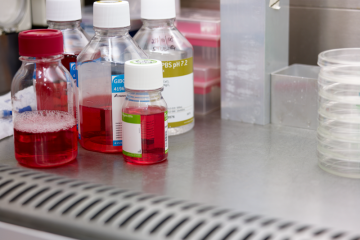PhD Studentship
Study of human late fetal lung tissue and 3D in vitro organoids to replace and reduce animals in lung developmental research

At a glance
In progress
Award date
January 2023 - December 2026
Grant amount
£120,000
Principal investigator
Dr Marko Nikolić
Co-investigator(s)
Institute
University College London
R
- Replacement
